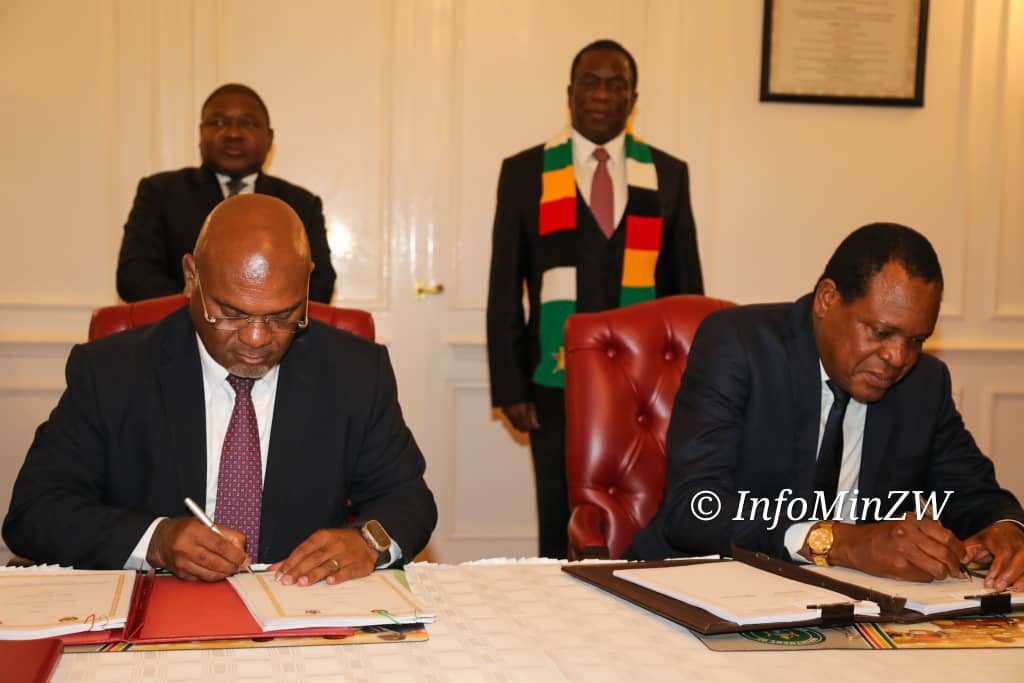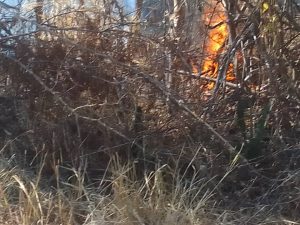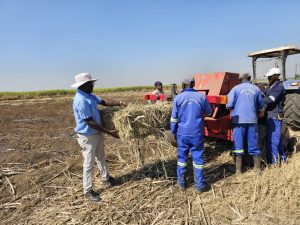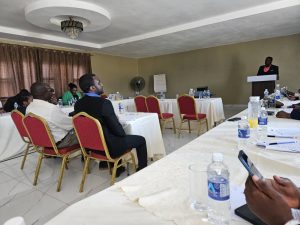EnviroPress Reporter
The governments of Mozambique and Zimbabwe have established a tri-basin institution to manage the Buzi, Pungwe, and Save River Basins’ water resources, which have, over the years, suffered from extreme climate effects such as floods, droughts, and cyclones.
The Buzi, Pungwe, and Save (BUPUSA) Watercourse Commission culminated from the signing of the Save Water Sharing Agreement, the BUPUSA Hosting Agreement, and the BUPUSA Establishment Agreement by the two countries’ Ministers of Water in Harare, Zimbabwe on 17 May 2023 and the Pungwe and Buzi accords in 2016 and 2019, respectively.
The signing of the agreements was witnessed by President Emmerson Mnangagwa and his counterpart Filipe Jacinto Nyusi who both commended the achievement and emphasized the need to operationalise the agreements and execute the mandate of the new tri-basin organisation.
“The Bilateral Tri-basin Commission will strengthen the good neighborliness and the social and economic ties that already exist between Mozambique and Zimbabwe.
“Further to enhancing cooperation between the two countries, the BUPUSA Commission will also create a platform for dialogue between the two countries on the management of the three basins,” said Carlos Mesquita, Mozambique’s minister of Public Works and Water Resources.
The BUPUSA Watercourses Commission will have oversight on the planning, development, and management of the water resources within the Buzi, Pungwe, and Save River Basins.
The BUPUSA secretariat will be hosted by the Government of Mozambique for the coming 15 years and by Zimbabwe, thereafter, as provided for by the BUPUSA Hosting Agreement.
Zimbabwe’s minister of Lands, Agriculture, Fisheries, Water, and Rural Development, Dr. Anxious Masuka, commended the establishment of the commission.
“The commission will ensure that water is managed in an environmentally friendly and sustainable manner to promote peace and provide prosperity for the stakeholders in Mozambique and Zimbabwe,” said Masuka.
Cooperation in the Pungwe, Save, and Buzi river basins is driven by water resources, joint monitoring, planning, development, and management of shared water resources, which require the two countries to cooperate.
This follows the Southern African Development Community (SADC) Revised Protocol on Shared Watercourses, which was signed in 2000.
The Protocol, whose objective is fostering closer cooperation for judicious, sustainable, and coordinated management, protection, and utilisation of shared watercourses and advance the SADC agenda of regional integration and poverty alleviation, calls for the need to establish river basin institutions, such as river basin commissions, joint water commissions, and water-sharing agreements.
The Buzi, Pungwe, and Save basins, collectively known as BUPUSA, are exclusively shared by the two countries and drain into the Indian Ocean. These three basins are located along the Beira corridor, an important economic corridor that links the Beira harbour to the hinterland.
The river basins are experiencing an increase in the frequency of extreme hydro-metrological events (floods and droughts). The number of droughts in the two countries is on the increase (1982, 1986, 1990-1992, 1995, 2010-2011, 2015-2020, 2023). The cyclone events (Eline, Japhet, Idai, Dineo, Ana, Freddy) are also testimony to these climate extremes.
Human activities in the basins are also on the rise, causing damage to the environment as well as deteriorating the water quality.
Small-scale gold miners in the basins have been identified as major polluters impacting surface water, groundwater, and wetlands adjacent to the river. Added to this are inappropriate catchment management activities in various parts of the basins, such as shifting and slope cultivation, charcoal burning, and gold panning, which have led to land degradation including increased sediment loads and deteriorating water quality.
Through the Global Environment Facility (GEF) – funded Management of Competing Water Uses and Associated Ecosystems in Pungwe, Buzi, and Save Basins project, the Mozambican and Zimbabwean governments are being supported in the conservation, sustainable use, and risk mitigation of the BUPUSA basins’ water resources and promotion of holistic approaches using the water-energy-food nexus, with a specific interest in connected ecosystems.
The project is being implemented by the International Union for Conservation of Nature (IUCN), while Global Water Partnership Southern Africa (GWPSA) is the bilateral executing agency at the regional level. At the national level, the project is being executed by the Ministry of Public Works, Housing, and Water Resources and Administração Regional de Águas – Centro (ARA-Centro, IP),






